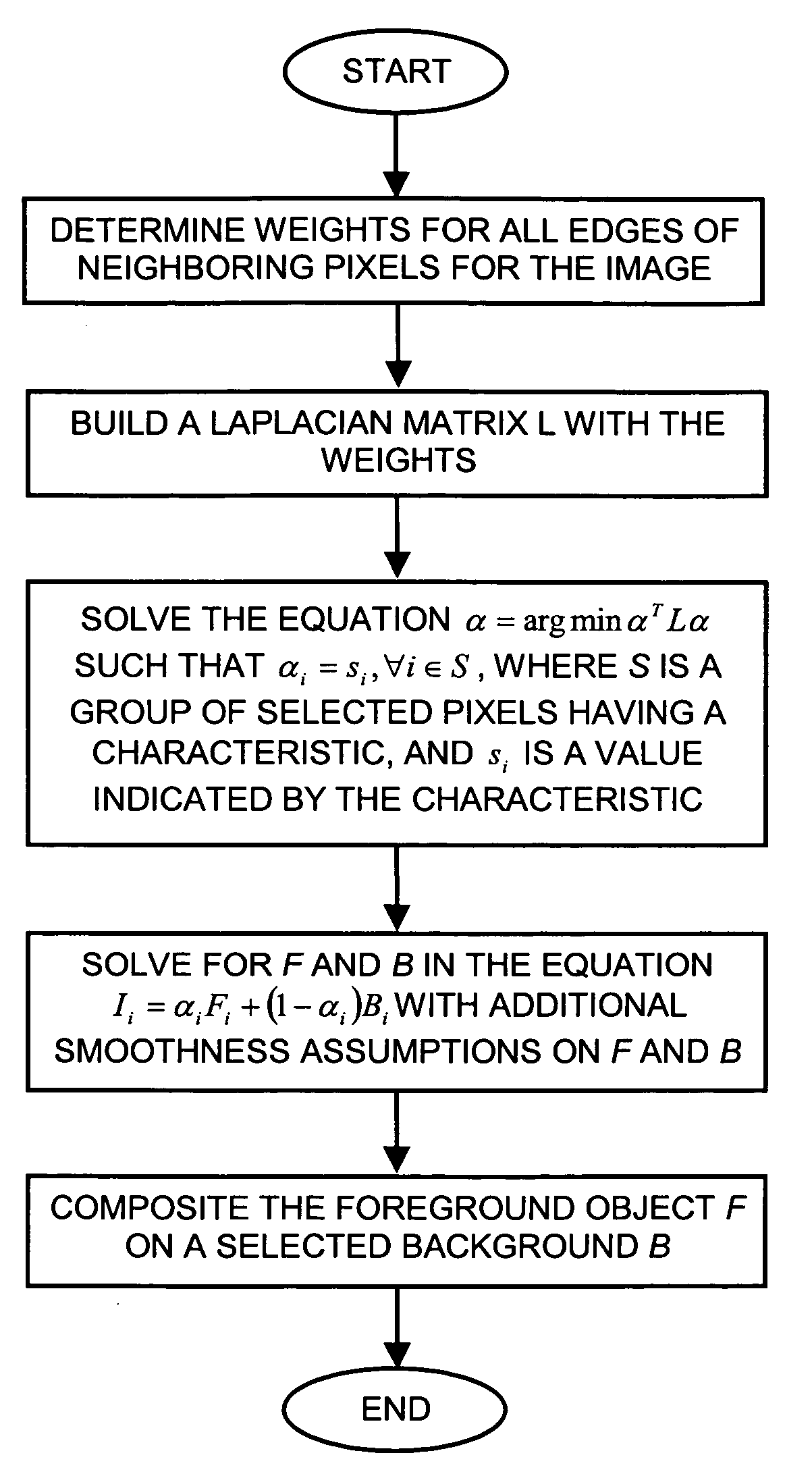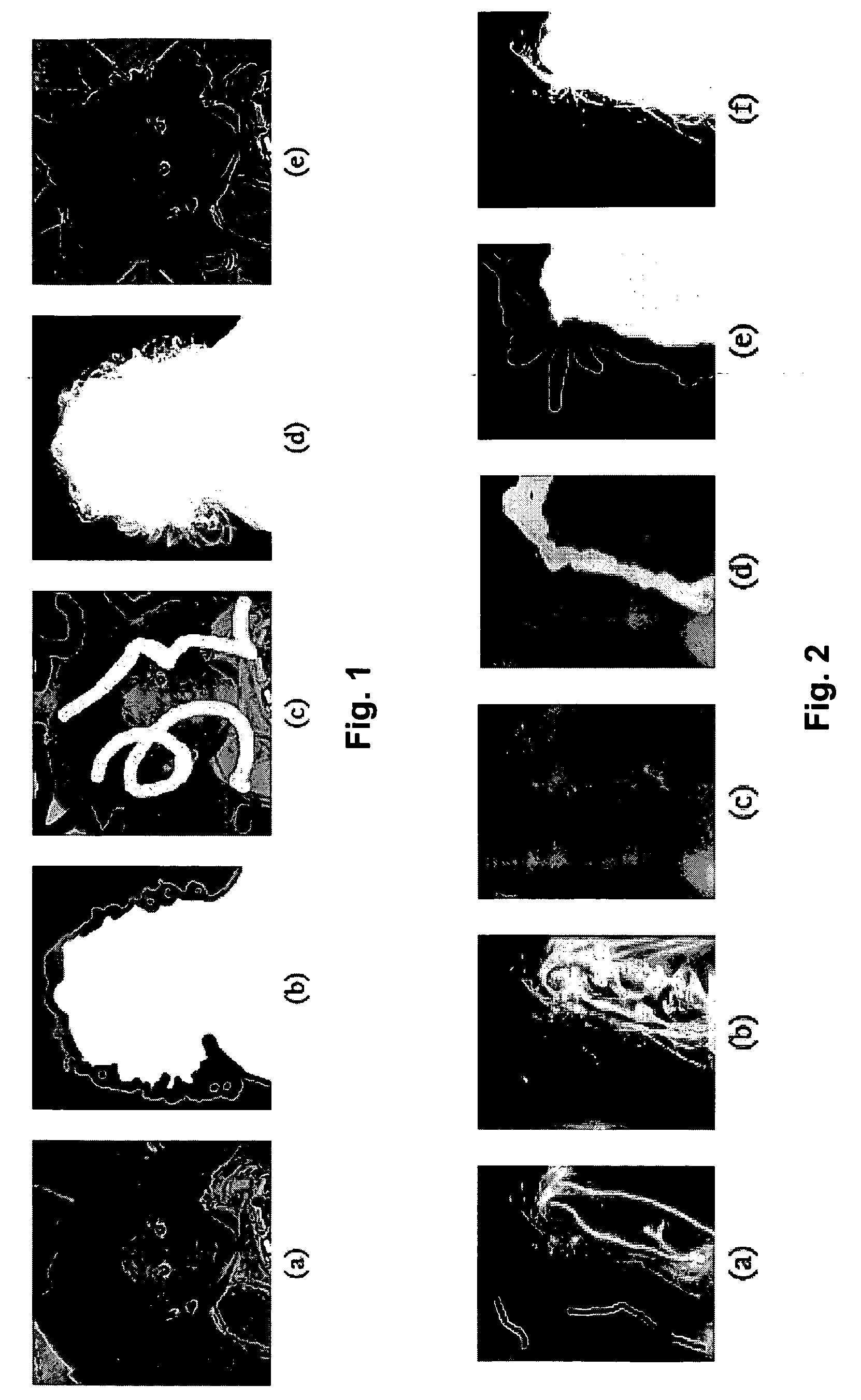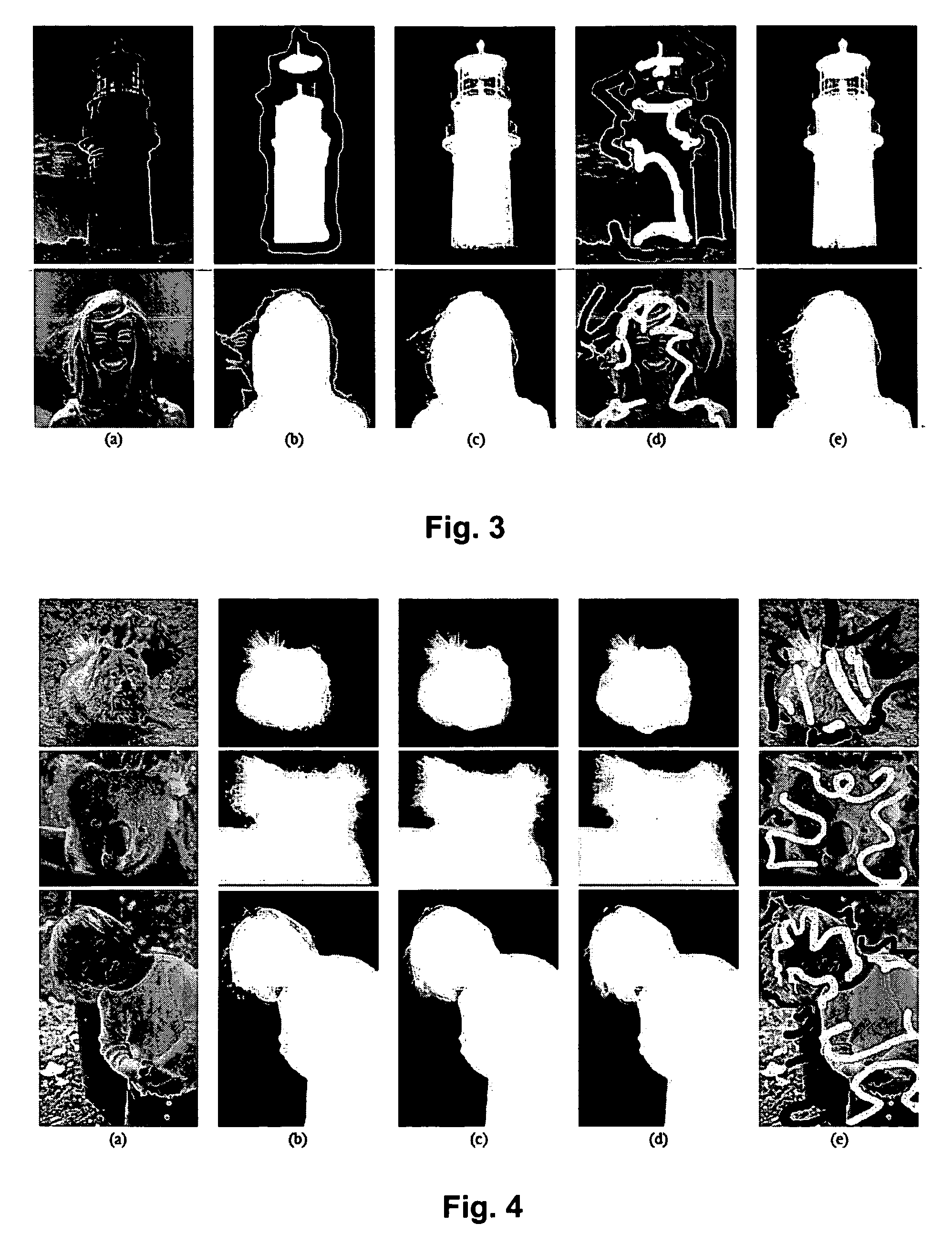Closed form method and system for matting a foreground object in an image having a background
- Summary
- Abstract
- Description
- Claims
- Application Information
AI Technical Summary
Benefits of technology
Problems solved by technology
Method used
Image
Examples
examples
[0098] In all examples presented in this section the scribbles used in our algorithm are presented in the following format: black and white scribbles are used to indicate the first type of hard constraints on a. Gray scribbles are used to present the third constraints class—requiring a and b to be constant (without specifying their exact value) within the scribbled area. Finally, red scribbles represent places in which foreground and background colors where explicitly specified.
[0099]FIG. 3 presents matting results on images from the Bayesian matting paper [5]. The results are compared with the results published on their webpage. The results are compatible. While the Bayesian matting results use a trimap, our results were obtained using sparse scribbles.
[0100] In FIG. 4 we extract mattes from a few of the more challenging examples presented in the Poisson matting paper [9]. For comparison, the Poisson and Bayesian matting results as calculated in [9] are also shown. In the first t...
PUM
 Login to View More
Login to View More Abstract
Description
Claims
Application Information
 Login to View More
Login to View More - R&D
- Intellectual Property
- Life Sciences
- Materials
- Tech Scout
- Unparalleled Data Quality
- Higher Quality Content
- 60% Fewer Hallucinations
Browse by: Latest US Patents, China's latest patents, Technical Efficacy Thesaurus, Application Domain, Technology Topic, Popular Technical Reports.
© 2025 PatSnap. All rights reserved.Legal|Privacy policy|Modern Slavery Act Transparency Statement|Sitemap|About US| Contact US: help@patsnap.com



